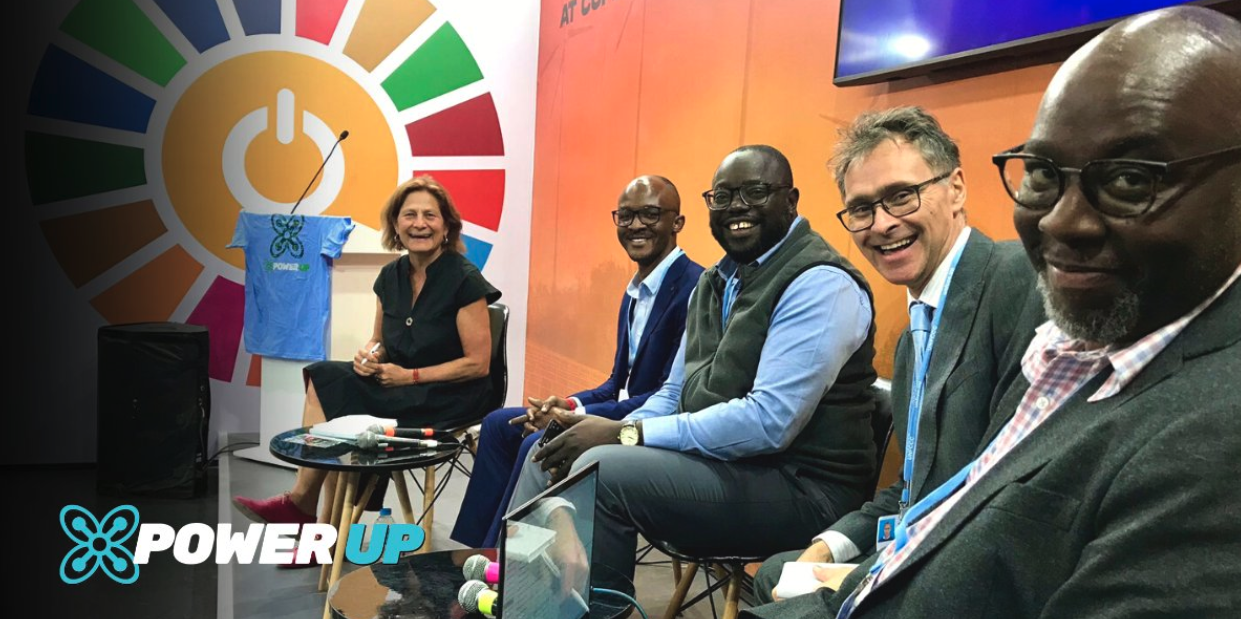
After nearly two weeks of climate negotiations in Sharm El-Sheikh, in the early hours of Sunday 20th November, COP27 finally came to an end.
Ashden were in Egypt as part of Power Up, a coalition campaign, with over 50 members, boosting African efforts to seek greater climate adaptation funding from the Global North to finance affordable, green energy access for those threatened by the climate crisis.
Commenting on the outcome, Harriet Lamb, CEO of Ashden, said: “The historic outcome on loss and damage that COP27 delivered after many years of pressure from those countries feeling the worst impacts of climate change could be a game changer, but the devil is in the detail and we await further information on what this will actually mean.
“The fundamental challenge of phasing out fossil fuels and limiting global temperature rise below 1.5C remains a major stumbling block and overshadows any other perceived wins. A disappointing lack of progress on adaptation funding for low-income countries to finance affordable, green energy access means there is still much work to be done to provide the millions most in need, including the refugees already displaced by extreme weather events, with the climate justice they deserve.
“Throughout the negotiations, Alok Sharma put in a heroic individual effort, but UK leadership was largely absent as the government sidestepped its responsibilities to push for those climate promises made in Glasgow to be turned into measurable funding flows.”
Ashden and the Power Up coalition were campaigning for world leaders, at Africa’s COP, to raise their ambitions and honour existing commitments to provide urgently needed energy access funding for communities most affected by energy poverty so they could build resilience and upscale adaptation efforts to secure jobs and sustainable growth.
Across the continent, more than 600 million African people go without access to electricity and the African Development Bank (AfDB) African Economic Outlook 2022 reported that Africa needs an annual investment of $32 billion to $ 40 billion along the energy value chain to achieve universal access for electricity by 2030.
Immediate action to provide adaptation funding to improve this energy access will help the many vulnerable communities affected address climate impacts and secure jobs and sustainable growth.
Climate change will create and increase health risks across Africa. The UN reports that warmer temperatures and higher rainfall increase the risk of diseases such as dengue fever, malaria and yellow fever, and scientists have predicted that if emissions continue to increase, heat-related deaths of children under five in Africa could double by 2050.
